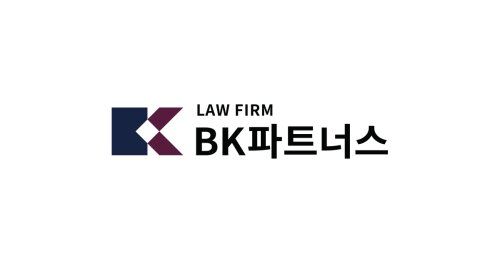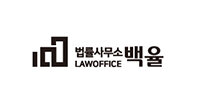Best Civil & Human Rights Lawyers in Seo-gu
Share your needs with us, get contacted by law firms.
Free. Takes 2 min.
List of the best lawyers in Seo-gu, South Korea
About Civil & Human Rights Law in Seo-gu, South Korea
Civil and human rights law in Seo-gu, South Korea, focuses on protecting the basic rights and freedoms of every individual within its jurisdiction. These rights are rooted in the Korean Constitution as well as international treaties to which South Korea is a party, such as the Universal Declaration of Human Rights. The law seeks to ensure that people in Seo-gu are protected from discrimination and unfair treatment due to factors like race, gender, disability, religion, or political beliefs. Civil rights further include protection of privacy, freedom of expression, and safeguards against unlawful arrest or detention. The government, local authorities, and the legal system all play an essential role in upholding these rights, offering various mechanisms through which grievances can be addressed.
Why You May Need a Lawyer
There are several scenarios in which someone in Seo-gu might need the expertise of a civil and human rights lawyer. If you believe your fundamental freedoms have been violated, for example through discrimination at work, wrongful termination, denial of services based on personal characteristics, harassment, or abuse by public officials, a lawyer can help you understand your rights and pursue remedies. Legal assistance is also valuable when facing issues related to due process, such as being detained without proper cause, or if you need to file complaints against authorities or organizations. Additionally, lawyers can assist with securing compensation, navigating complex legal procedures, and representing you in court if needed.
Local Laws Overview
Seo-gu, like other districts in South Korea, operates under the framework of national civil and human rights laws, primarily stemming from the Korean Constitution and acts such as the National Human Rights Commission Act and the Civil Act. Some key local measures include strict anti-discrimination provisions, processes for remedying wrongful actions by public officials, and special protections for vulnerable groups such as children, elderly persons, individuals with disabilities, and foreigners. Local government bodies in Seo-gu also cooperate with the National Human Rights Commission to investigate complaints and enforce relevant laws. Procedures to file complaints are generally accessible, and awareness campaigns are regularly conducted to inform residents of their rights and available protections.
Frequently Asked Questions
What rights are protected by law in Seo-gu?
Residents have their personal freedoms, privacy, dignity, equality before the law, and protection from discrimination safeguarded by local and national legislation.
Can I seek legal help if I experience discrimination at work?
Yes. If you believe you have faced discrimination in the workplace, whether due to gender, nationality, disability, or other protected characteristics, you may file a complaint and consult a lawyer for legal support.
How do I report a human rights violation in Seo-gu?
You can report violations to local police, government offices, or directly to the National Human Rights Commission of Korea. Legal professionals can assist with the process.
Are there special protections for foreigners in Seo-gu?
Yes. Foreigners enjoy equal protection under the law and have the right to receive legal assistance, including interpretation services for non-Korean speakers.
What should I do if a public official violates my rights?
You can file a complaint through the district office or the Human Rights Commission. Legal counsel can guide you through mediation or court procedures if necessary.
Is there legal aid available for those who cannot afford a lawyer?
Yes. State-sponsored legal aid and nonprofit organizations provide free or reduced-cost legal services to qualifying individuals in Seo-gu.
How long do I have to file a complaint about a rights violation?
Time limits vary depending on the type of case, but it is best to consult a lawyer or authority as soon as possible to avoid missing any statutory deadlines.
What protections exist for children and vulnerable groups?
Local and national laws provide additional safeguards for children, people with disabilities, and the elderly, including special complaint procedures and proactive government monitoring.
Can I refuse to answer questions from authorities if I feel my rights are being violated?
You have the right to remain silent and to seek legal representation if you feel your legal rights are at risk during police or official investigations.
Are there alternatives to court for resolving human rights disputes?
Yes. Mediation and reconciliation services are available, often facilitated by local government offices or the National Human Rights Commission, allowing for less adversarial resolution of conflicts.
Additional Resources
Individuals seeking advice or assistance with civil and human rights issues in Seo-gu may find the following resources helpful:
- Seo-gu District Office Civil & Human Rights Department
- The National Human Rights Commission of Korea
- Korean Bar Association - Referral services for specialized lawyers
- Legal Aid Corporation Korea - Free and low-cost legal assistance
- Local Community Legal Centers
- Non-Governmental Organizations (NGOs) specializing in human rights, such as the Korean Human Rights Foundation
Next Steps
If you believe your civil or human rights have been infringed in Seo-gu, start by collecting any evidence related to your situation, such as documents, messages, or witness statements. Next, consult with a qualified civil and human rights lawyer, either through private law firms, the local legal aid office, or community organizations. File a formal complaint with the relevant authority if advised to do so, and follow their guidance on how to proceed. Remember to act promptly, as some legal remedies are time-sensitive. Engaging with advocacy or support organizations can provide additional guidance and emotional support throughout the process.
Lawzana helps you find the best lawyers and law firms in Seo-gu through a curated and pre-screened list of qualified legal professionals. Our platform offers rankings and detailed profiles of attorneys and law firms, allowing you to compare based on practice areas, including Civil & Human Rights, experience, and client feedback.
Each profile includes a description of the firm's areas of practice, client reviews, team members and partners, year of establishment, spoken languages, office locations, contact information, social media presence, and any published articles or resources. Most firms on our platform speak English and are experienced in both local and international legal matters.
Get a quote from top-rated law firms in Seo-gu, South Korea — quickly, securely, and without unnecessary hassle.
Disclaimer:
The information provided on this page is for general informational purposes only and does not constitute legal advice. While we strive to ensure the accuracy and relevance of the content, legal information may change over time, and interpretations of the law can vary. You should always consult with a qualified legal professional for advice specific to your situation.
We disclaim all liability for actions taken or not taken based on the content of this page. If you believe any information is incorrect or outdated, please contact us, and we will review and update it where appropriate.
Browse civil & human rights law firms by service in Seo-gu, South Korea
Seo-gu, South Korea Attorneys in related practice areas.









